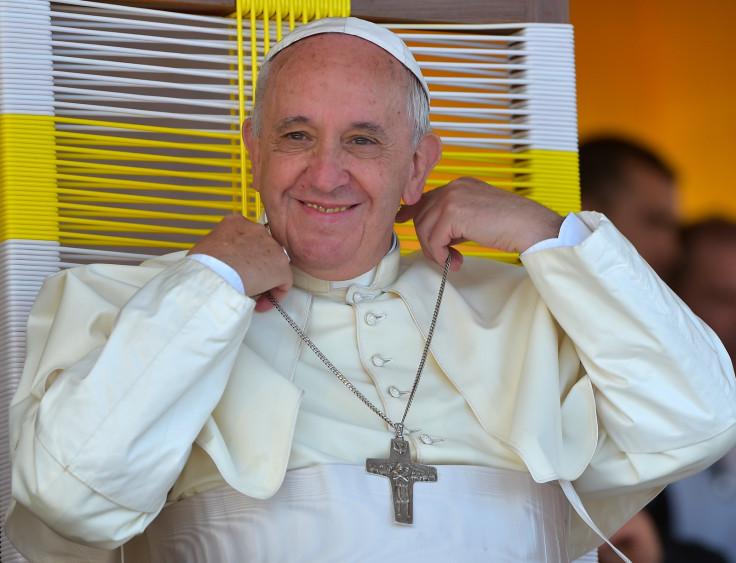Watch: Pope Francis and ISS astronauts talk about love, life and humanity's place in the universe
"Your little glass palace in totality is greater than the sum of its parts, and this is the example that you give us," the Pope told ISS astronauts during the exchange.
The astronauts living aboard the International Space Station (ISS) got the opportunity to speak to Pope Francis in a unique exchange. On 26 October (Thursday), Pope Francis called the ISS and spoke to the six astronauts about love, life and humanity's place in the universe.
The 20-minute conversation, which was steamed live by Nasa, involved astronaut Paolo Nespoli from Italy translating the Pope's words for the rest of his colleagues. "Your little glass palace in totality is greater than the sum of its parts, and this is the example that you give us," the Pope told ISS astronauts during the exchange.
The head of the Roman catholic church asked the astronauts how their time in space affected their perspectives. "As you're contemplating the undoubted limits of the universe, it makes us think about where we come from and where we're going," the Pope said. "In light of your experiences in space, what are your thoughts regarding the place of man in the universe?"
"Holy Father, this is a complex question," Nespoli responded in Italian. "I feel like a technical person — an engineer — and I'm here among experiments, machinery and equipment. When we speak of these much more internal questions of where we come from, I remain rather perplexed.
"I think that our objective here is that of knowing our being and to fill our knowledge to understand what's around us," he said. "But on the other hand, an interesting thing is that the more we know, the more we realize how little we know."
The Pope, moving on to the next question, pointed to a painting in the room where he was speaking, inside the Vatican. The painting is based on the 14<sup>th century poem Divine Comedy by Dante Alighieri, which refers to love as a force that moves the Sun and the stars. Keeping that in mind, the Pope asked the ISS crew, "What do you think about referring to love as the force that moves the universe?"
Russian astronaut Alexander Misurkin replied to the question, explaining to the Pope about how he recently began listening to an audio book of The Little Prince. Misurkin said that the story resonated with him as it involved a little boy willing to give up his life to save plants and animals and those close to him. "The best example of what is love is perhaps what is shown in this book," Misurkin said.
Pope Francis also asked the crew to share their reasons for becoming astronauts and what they most enjoyed about their time living in space.
Russian cosmonaut Sergey Ryazansky said that it was a "great honour" for him to continue in the footsteps of his grandfather, who was an engineer during the launch of Sputnik. It is a great honor to continue what he was doing to fulfil his dreams, because spaceflight is the future of all humanity and always the frontier for new technologies and sciences," Ryazansky said.
"People cannot come up here and see the indescribable beauty of the Earth and not be touched in their souls," said American astronaut Randy Bresnik. "As we see the peace and serenity of our planet ... there's no borders, no conflict. We hope that an example of what we can achieve together [in space] sets an example for the rest of the world."
The responses appeared to have really moved the Pope, who said that it was important to "never forget our roots". He said that the crew had also succeeded in understanding Earth's fragility and how it can be destroyed. The conversation ended with astronaut Joe Acaba thanking Pope Francis for "for making us reflect on things that are greater than we are."























